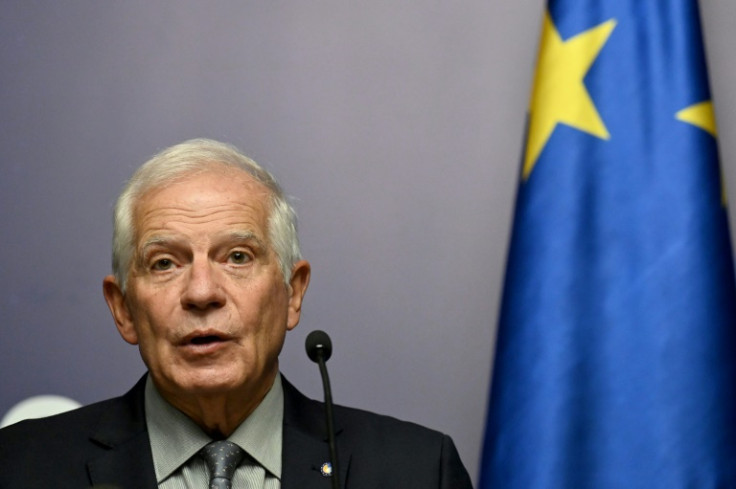EU Foreign Policy Chief Expected In China For Pre-summit Talks

European Union foreign policy chief Josep Borrell is due to arrive in China on Thursday, looking to manage the bloc's "de-risking" strategy with its largest trading partner while laying the foundations for a planned summit this year.
The visit comes just days after war broke out between Israel and Hamas, for which Borrell assembled an emergency meeting of European foreign ministers. China has called on all parties to "cease fire".
Borrell's trip, which was postponed twice this year and is expected to last until Saturday, will involve talks with Chinese Foreign Minister Wang Yi and will tackle issues including bilateral relations, global challenges and trade.
The EU says the visit -- the latest in a string of high-level EU-China dialogues -- "should culminate in the EU-China summit later this year".
Relations between the EU and China have been heavily strained since the Russian invasion of Ukraine last February, which Beijing has stopped short of condemning.
Rather than halting dialogue completely, Brussels is pushing for an approach with Beijing that balances its concerns over relying too much on China while also maintaining ties with the world's second-largest economy.
European Commission President Ursula von der Leyen has defined the position as "de-risking rather than decoupling" from China.
Foreign Ministry Spokesperson Wang Wenbin told reporters that "China welcomes" Borrell's visit, adding that his trip would "inject new impetus into the two sides' joint efforts to address challenges and maintain world peace and stability".
"The world is currently facing a volatile and turbulent situation," Wang said.
"China and the EU, as two major global forces, markets and civilisations, have broad common interests in... promoting global development and prosperity and advancing human civilisation."
Von der Leyen -- who carried out her own official visit to China in April -- announced last month that the EU was launching an investigation into Beijing's provision of subsidies for its rapidly rising electric vehicle industry.
European leaders have said that the Chinese subsidies have resulted in unfair competition in their automotive market.
But Beijing has criticised the investigation, warning that it will harm its trading relationship with the bloc.
And earlier this month, the EU named sensitive technologies that it must defend from rivals, including artificial intelligence.
Borrell's visit is also likely to include dialogue on the ongoing war in Ukraine. China has sought to position itself as a neutral party, but the EU has been critical of its stance.
The bloc's trade commissioner Valdis Dombrovskis said Beijing's position was "affecting the country's image" during his visit to China last month.
© Copyright AFP {{Year}}. All rights reserved.




















